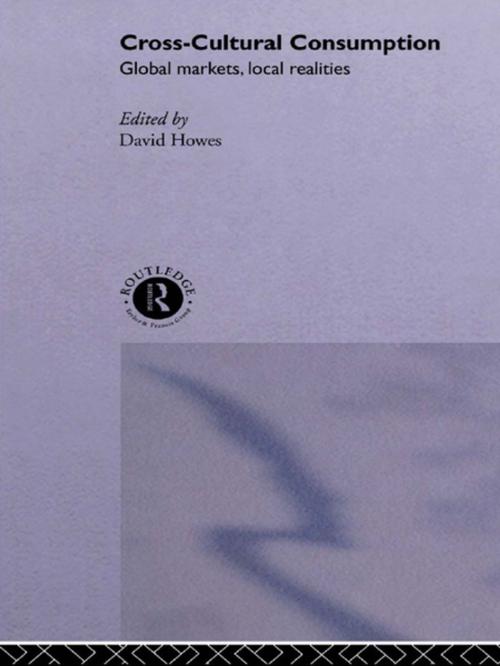Cross-Cultural Consumption
Global Markets, Local Realities
Nonfiction, Social & Cultural Studies, Social Science, Sociology| Author: | ISBN: | 9781134772346 | |
| Publisher: | Taylor and Francis | Publication: | November 1, 2002 |
| Imprint: | Routledge | Language: | English |
| Author: | |
| ISBN: | 9781134772346 |
| Publisher: | Taylor and Francis |
| Publication: | November 1, 2002 |
| Imprint: | Routledge |
| Language: | English |
Goods are imbued with meanings and uses by their producers. When they are exported, they can act as a means of communication or domination. However, there is no guarantee that the intentions of the producer will be recognized, much less respected, by the consumer from another culture. Cross-Cultural Consumption is a fascinating guide to the cultural implications of the globalization of a consumer society. The chapters address topics ranging from the clothing of colonial subjects in South Africa and the rise of the hypermarket in Argentina, to the presentation of culture in international tourist hotels. Through their examination of cultural imperialism and cultural appropriation of the representation of otherness and identity, Howes and his contributors show how the increasingly global flow of goods and images challenges the very idea of the cultural border and creates new spaces for cultural invention. Marian Bredin, Concordia University, Constance Classen, Jean Comaroff, University of Chicago, Mary Crain, University of Barcelona, Carol Handrickson, Marlboro Colleg
Goods are imbued with meanings and uses by their producers. When they are exported, they can act as a means of communication or domination. However, there is no guarantee that the intentions of the producer will be recognized, much less respected, by the consumer from another culture. Cross-Cultural Consumption is a fascinating guide to the cultural implications of the globalization of a consumer society. The chapters address topics ranging from the clothing of colonial subjects in South Africa and the rise of the hypermarket in Argentina, to the presentation of culture in international tourist hotels. Through their examination of cultural imperialism and cultural appropriation of the representation of otherness and identity, Howes and his contributors show how the increasingly global flow of goods and images challenges the very idea of the cultural border and creates new spaces for cultural invention. Marian Bredin, Concordia University, Constance Classen, Jean Comaroff, University of Chicago, Mary Crain, University of Barcelona, Carol Handrickson, Marlboro Colleg















